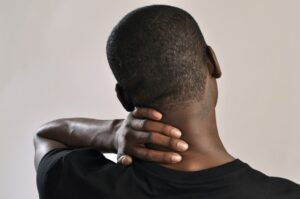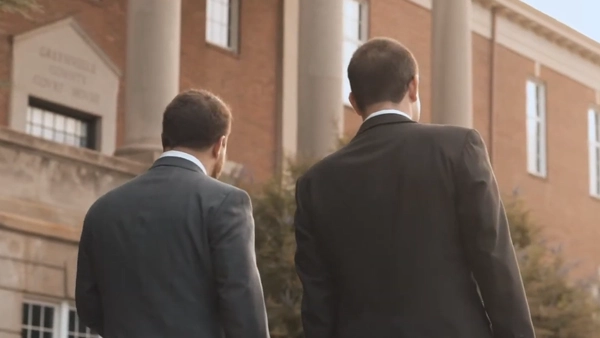If you fell and sustained injuries as the result of another’s negligence or on public premises that were not properly maintained, you may be able to receive compensation for your injuries. Whether you fell at your local grocery store, the movie theater, on your neighbor’s property, or the sidewalk in your neighborhood, you may have a valid legal claim which entitles you to collect damages for medical bills, loss of income, pain and suffering, or any other out of pocket expenses that you have had to suffer as a result your accident- related injuries.
However, it is important to understand that an owner of property is not liable for your injuries just because they owned the property. There are numerous contingencies and various factors to be considered in proving liability that are best left to an experienced and reputable personal injury attorney. If you have suffered physical injury following a slip and fall in South Carolina, the attorneys at David R. Price, Jr., P.A., are ready to help.

What You Must Prove to Succeed on a Slip and Fall Claim
The assessment of your slip and fall claim will be determined under the basic principles of Negligence law. In general, the elements of negligence are:
- The defendant owed the plaintiff a DUTY of care.
- The defendant BREACHED that duty
- The Plaintiff suffered tangible, physical INJURY
- The defendant’s conduct was the CAUSE of the injury
- The specific harm was FORESEEABLE
Application of Negligence Law to a Slip and Fall Claim
The basic underlying principles of Negligence law can be applied to support a Slip and Fall claim as follows:
- You slipped or tripped on someone else’s property.
- The owner of this property owed you a duty of care.
- The owner breached this duty by failing to adequately maintain their property and keep it safe from tripping/slipping hazards.
- You tripped because of the owner’s breach of duty rather than as a result of your own negligence.
- You suffered actual injury from your fall capable of being proven by documentation or otherwise.
Elements of a Slip and Fall Claim Dissected
Confused? If so, your confusion is perfectly normal. If you have been injured on someone else’s property and are struggling through physical recovery and an ever increasing pile of medical bills, you should not also shoulder the burden of trying to understand and parse together all of these important legal intricacies. Allow the experienced attorneys at David R. Price, Jr., P.A., to take up this burden for you.
The following are some of the practical considerations that you should be aware of as they relate to proving the elements of your personal injury claim.
Did the owner of the property owe you a “duty of care”?
A thorough answer to this question could easily fill an entire ebook – not to mention likely result in even further confusion. The important takeaway with respect to proving this element of your slip and fall claim is that the nature of the duty of care a property owner owes to you depends upon your relationship to the subject property owner.
For instance, South Carolina recognizes four general classifications of persons present on the property of another:
- Trespassers,
- Invitees,
- Licensees, and
- Children.
Different standards of care apply depending upon which one of these classifications you happened to fall under when you were injured. Determining which standard of care applies to you is a very complex question that is heavily determined by the facts specific to your particular situation. As such, this question is best answered by your personal injury attorney following a thorough explanation of the circumstances leading to your fall-related injuries.
Did you fall because of your own negligence?
Even if you fell as a result of a hazard created by the property owner, the first thing the property owner will do is question why you did not recognize and avoid the hazard. Did you spill your drink at the grocery store before inadvertently tripping on the “wet” floor? Did you have one too many mimosas at breakfast prior to your visit to the mall which could arguably have resulted in your fall? Or, perhaps you were texting while also running through the movie theatre to make it to your seat, and in the process tripped on an extension cord traversing across the aisle. If circumstances such as this were at play prior to your fall, you may have trouble proving that you fell because of the hazard rather than as a result of your own negligence. After all, in the last example, was it the extension cord that caused your fall or the fact that you were texting and running through the aisles? Perhaps the extension cord was hidden so that you could not have seen it even if you had not been texting. An experienced personal injury attorney can recognize and defuse these types of arguments based on your own alleged negligence.
Did the fall “cause” your injuries?
This may seem like an easy question. However, you may be surprised to hear that it is often one of the most difficult elements to prove. For instance, did you suffer a prior fall, after which you also complained of symptoms consistent with your particular injury? Did you injure your right shoulder somehow by falling on your left shoulder? Sometimes the circumstances of your fall can muddy the waters when it comes to proving your slip and fall claim.
Some common and often very serious injuries associated with slip and falls include the following:
- Broken bones
- Traumatic brain injuries
- Dislocated shoulders
- Spinal cord injury
- Internal organ damage
These injuries could result in life-long physical restrictions and chronic pain that lasts for many years if not an entire lifetime. The existence and severity of these injuries may not be readily apparent at the onset. For instance, the symptoms of many spinal injuries do not fully present themselves for many months, if not longer, following injury sustained from a slip and fall. As such, prompt evaluation and treatment from a medical professional and the retention of experienced legal assistance is key.
Steps That Will Likely Be Taken By Your Personal Injury Attorney
It is often the case that there are no witnesses or clear cut evidence to back up a slip and fall case. As such, your lawyer will likely initiate investigation and gathering the requisite evidence immediately upon being retained. Some key steps that will be need to be taken as soon as possible are as follows:
- Photographing the accident scene.
- Determining who the property owners are and who was in possession and control of the property at the time of the fall.
- Determining whether there is applicable insurance coverage and the amounts of the limits of insurance.
- Acquiring any policy reports, incident reports, accident reports, or other documentation that may have been created to document your fall.
- Ascertain the existence and identifying of any witnesses, if they happen to exist.
It is vital to begin your investigation by taking the steps listed above as soon as possible, as you should assume that property owners and their lawyers will take steps to destroy evidence or otherwise confuse the facts necessary to prove liability as soon as they learn of your injuries. If you have been injured on somebody else’s property, you should contact the experienced personal injury attorneys at David R. Price, Jr., P.A., as soon as possible, so they can get to work on your case.







